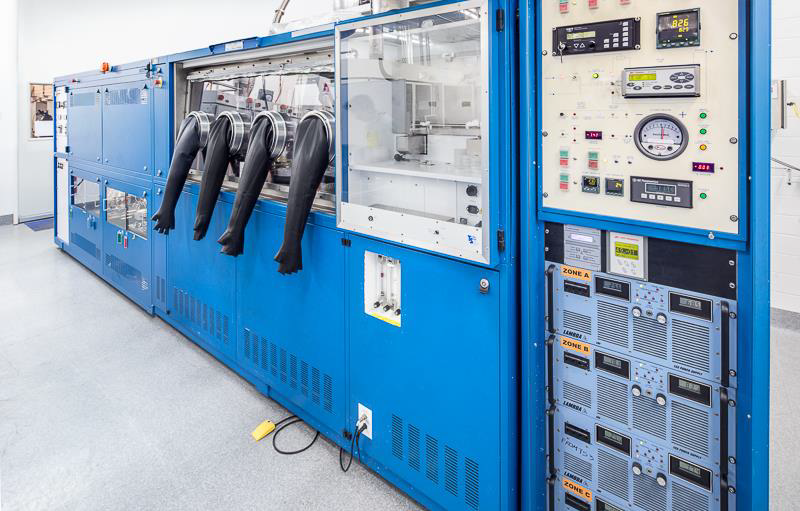Australian semiconductor developer BluGlass Limited has successfully demonstrated working tunnel junction laser diodes in a world-first proof-of-concept using its proprietary remote plasma chemical vapour deposition (RPCVD) technology.
 A BluGlass RPCVD semiconductor wafer manufacturing platform, the BLG-300. Image Credit: BluGlass Limited
A BluGlass RPCVD semiconductor wafer manufacturing platform, the BLG-300. Image Credit: BluGlass Limited
The novel laser diode prototypes leverage BluGlass’ unique RPCVD tunnel junction technology, developed over many years for use in highpower products including laser diodes and high-brightness LEDs.
Designed to enable higher power and more efficient lasers for use in commercial applications such as 3D printing and industrial welding, these RPCVD tunnel junction laser diode prototypes have demonstrated good lasing behaviour. This milestone helps confirm the potential of the RPCVD laser diode designs to address the critical performance requirements for high value gallium nitride (GaN) laser diode applications.
GaN laser diode applications in the industry are currently limited by optical and resistive loss in the magnesiumcontaining layers (the p-type layers) which leads to low conversion efficiencies, typically in the 40-45% range compared to the close to 90% in GaN-based LEDs. Almost 50% of the power consumed when operating GaN laser diodes is lost in the form of heat due to the highly resistive p-type layers, traditionally needed to create the electrical circuit in a laser diode.
BluGlass’ novel approach, enabled by the unique benefits of low temperature, low hydrogen RPCVD growth can eliminate the need for these highly resistive and performance losing p-type layers. RPCVD enabled novel designs replace the p-type cladding layer with an RPCVD tunnel junction and second n-type cladding layer - called a dual n-wave laser diode, paving the way to significantly improve laser diode performance in the future.
The Company will continue to optimise its RPCVD tunnel junction laser diode design, epitaxy and fabrication to maximise laser performance.
BluGlass Executive Chair James Walker said “This is an important validation of the potential of our unique RPCVD and tunnel junction technologies. This achievement is a testament to the efforts of our leading-edge team in developing a range of innovative laser diode products, including this world-first demonstration of dual-n-wave lasers. This has the potential to transform how laser diodes are made to help bring GaN lasers into a new era. “While these novel lasers have significant development required before the launch of future RPCVD enhanced products; our significantly further advanced standard (MOCVD) laser diode product development continues to focus on solving reliability and improving our downstream production ahead of launching commercial products to waiting customers.”
This announcement has been approved for release by the board.